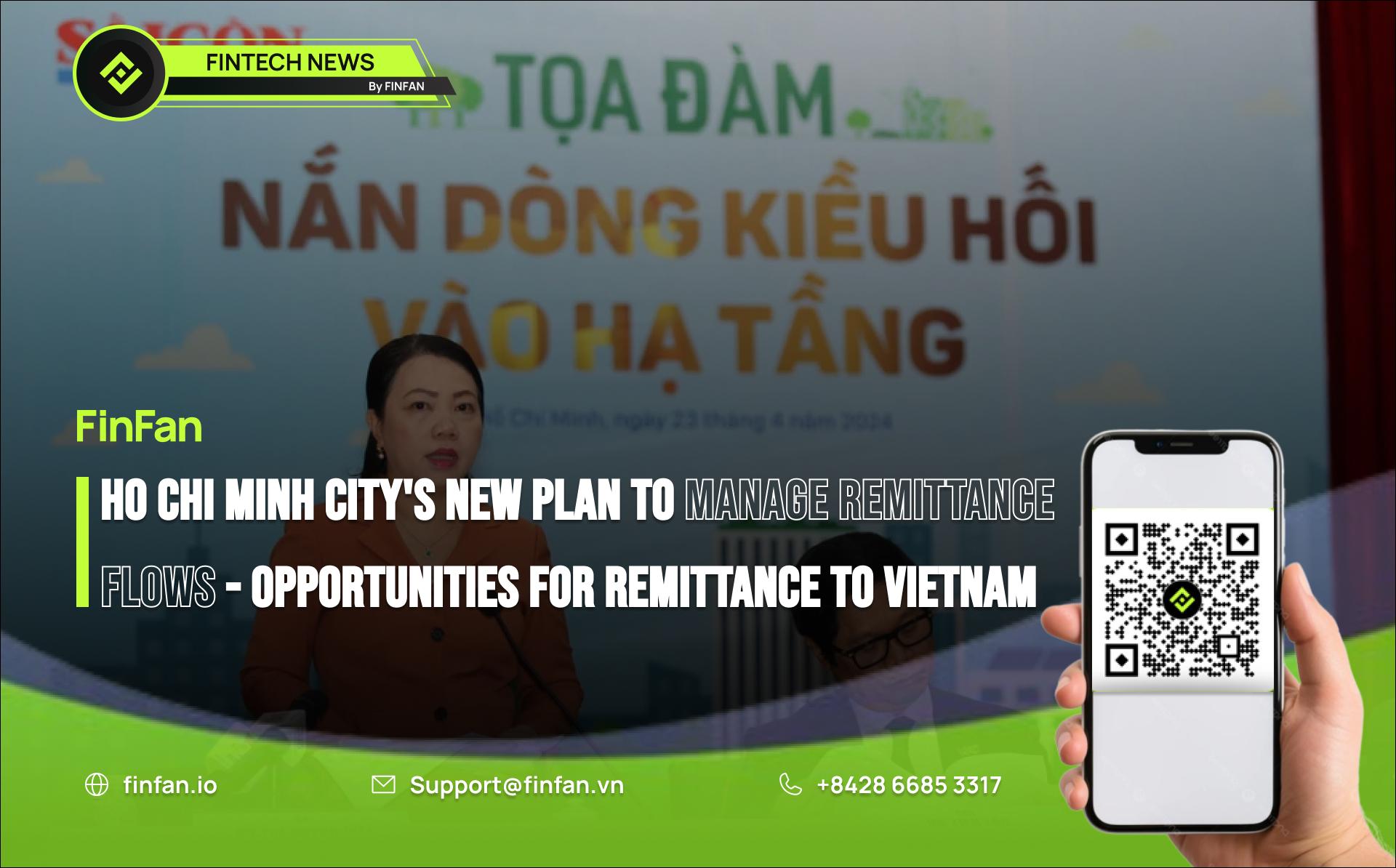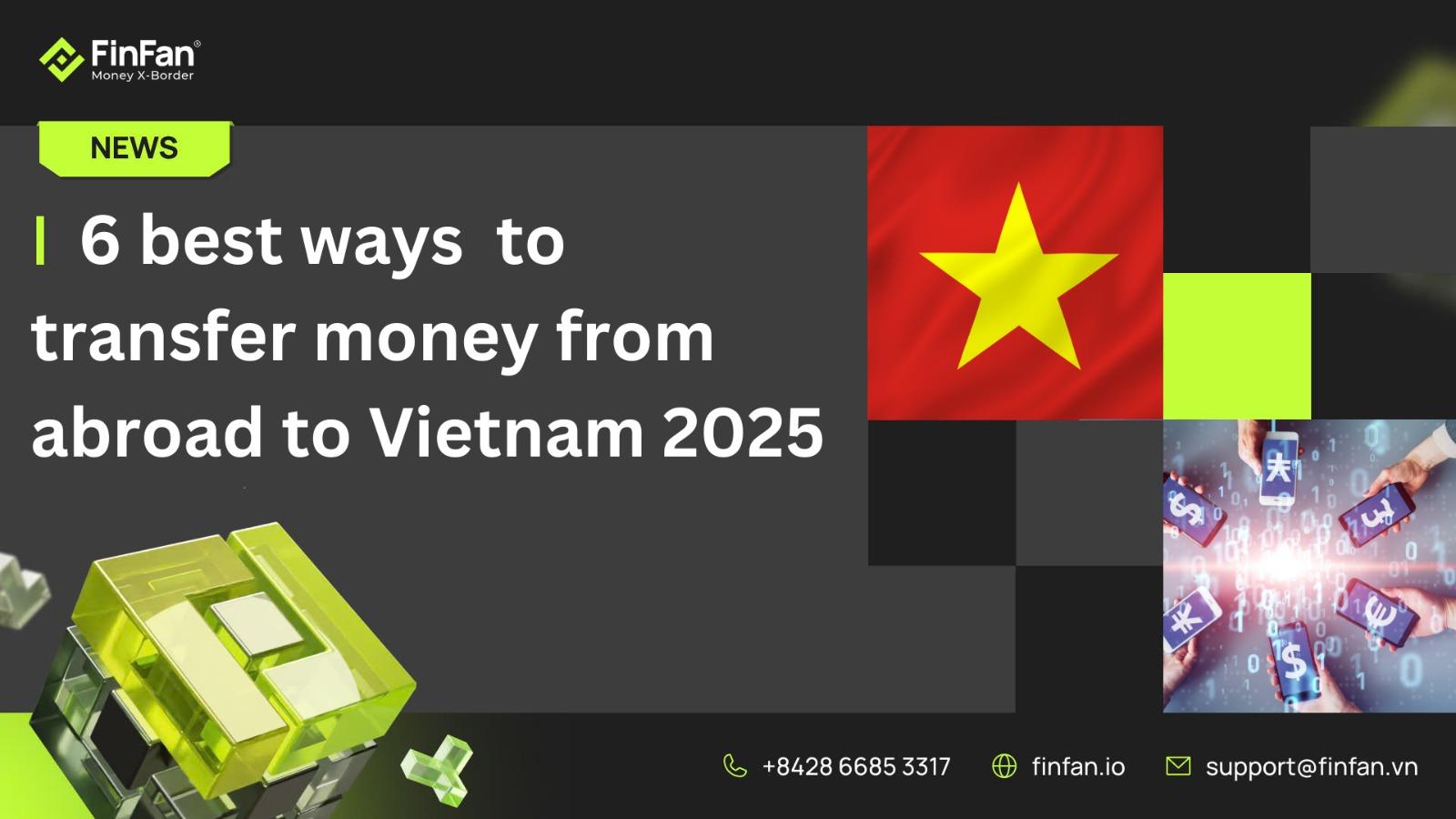Ho Chi Minh City's New Plan to Manage Remittance Flows - Opportunities for Remittance to Vietnam

Vietnam has long been one of the world's leading recipients of remittances, with a significant portion of these funds flowing into Ho Chi Minh City.
Remittances play a vital role in the country’s economy, supporting millions of households, fostering financial stability, and contributing to economic growth.
Recently, Ho Chi Minh City has proposed a plan to better manage or "nắn dòng" (redirect) remittance flows.
This initiative could present new opportunities for enhancing the efficiency and impact of remittance transfers to Vietnam.
Understanding Ho Chi Minh City's Proposal
The proposal by Ho Chi Minh City aims to channel remittances more strategically to maximize their economic benefits. "Nắn dòng kiều hối" translates to "redirecting remittance flows," which suggests a move towards guiding these funds into specific sectors or investments.
The primary goals appear to be promoting local investment, supporting economic development, and enhancing financial inclusivity.
This plan could involve a range of measures, such as encouraging remittance recipients to invest in local businesses, real estate, or savings schemes.
Additionally, it might include incentives for remittance senders to use formal channels, thereby increasing the transparency and traceability of funds.
Current Landscape of Remittances in Vietnam
Vietnam is one of the top recipients of remittances globally, with Ho Chi Minh City being a primary hub due to its large population and economic significance. In 2023, Vietnam received over $19 billion in remittances, with a substantial portion coming from Vietnamese communities in the United States, Canada, Australia, and Europe.
Ho Chi Minh City has consistently ranked as the top destination for remittance inflows in Vietnam, reflecting its economic importance and the large number of Vietnamese expatriates with familial ties to the city.
According to statistics, in 2023 alone, the city received an estimated nearly $9.5 billion in remittances.
This substantial inflow underscores the critical role that remittances play not only in supporting households and communities but also in bolstering the city's economic development.
This impressive figure demonstrates Ho Chi Minh City's dominance in the national remittance landscape and highlights the potential economic benefits that could be derived from effectively managing and optimizing these inflows.
Currently, most remittances are used for consumption, such as daily expenses, education, and healthcare. However, a smaller portion is directed towards savings and investments. The city’s proposal aims to increase the latter, thus fostering economic growth.
The city's new proposal to guide remittance flows more strategically aims to harness this financial power, potentially channeling more funds into productive investments, savings, and other forms of economic development.
This initiative could transform how remittances are used, encouraging greater economic stability and growth while providing opportunities for both senders and recipients to benefit from a more structured approach to financial management.
As Ho Chi Minh City continues to lead the nation in remittance volume, understanding and maximizing the impact of these funds will be crucial for the city’s future growth and prosperity.
Opportunities for Remittance to Vietnam Transfers
The new initiative presents several opportunities:
Growth in the Remittance Market: By formalizing remittance channels and encouraging the use of banking and financial services, there could be a significant expansion in the remittance market. This would also attract more fintech companies to innovate and offer new services tailored to the needs of the Vietnamese diaspora and recipients in Vietnam.
New Financial Products: Banks and financial institutions could develop new products such as investment funds, bonds, or savings accounts that specifically target remittance flows. These products could offer better returns than traditional savings, encouraging recipients to invest more of their remittances.
Enhanced Financial Inclusion: By directing remittances into formal financial systems, more Vietnamese households could gain access to banking services, credit, and insurance, thereby enhancing financial inclusion and security.
Challenges and Considerations
While the proposal has potential benefits, there are also challenges and considerations:
Regulatory Hurdles: Implementing such a plan would require clear regulatory guidelines and cooperation between various stakeholders, including banks, remittance service providers, and government bodies.
Sender and Recipient Preferences: There might be resistance from remittance senders and recipients who prefer flexibility in how they use their funds. The government will need to balance its goals with the needs and preferences of these individuals.
Cost and Accessibility: If new regulations increase the cost or complexity of sending money, this could deter people from using formal channels, potentially reducing remittance inflows.
Impact on the Vietnamese Diaspora
The Vietnamese diaspora plays a crucial role in supporting their families back home. Any changes in how remittances are managed could directly impact their financial strategies.
The proposal could encourage more structured investments, such as in property or business ventures, providing a more stable financial future for their families. However, it might also limit the flexibility they currently enjoy in supporting immediate needs.
Conclusion Regarding Ho Chi Minh City's New Plan to Manage Remittance Flows - Opportunities for Remittance Transfers to Vietnam
Ho Chi Minh City’s proposal to manage remittance flows represents a forward-thinking approach to maximizing the economic benefits of remittances in Vietnam.
While there are challenges to address, the initiative opens up new opportunities for growth in the remittance market, financial innovation, and enhanced economic development.
As this plan progresses, it will be crucial to monitor its impact on both the Vietnamese economy and the millions of families that rely on these vital funds.
This article was curated and authored by FinFan's market research and development team, alongside our marketing department.
About FinFan
FinFan is a cross-border embedded financial services company that focuses on mass disbursement, fund collection, card processing, IBAN, and digital APMs solutions, which can provide valuable input and integration on and for the same.
FinFan is already integrated with almost the world's well-known MTOs, PSPs, switch, and core fintech platforms such as Money Gram, Thunes, Qiwi, Remitly, World Remit, Bancore, PaySend, Terrapay, Ria Money Transfer (Euronet), Dlocal, Ripple, TripleA, FoMo Pay, Wings, etc.
For more information, please get in touch with us through:
🌐https://finfan.io
📞(+84) 2866 85 3317
✉ support@finfan.vn
LinkedIn: FinFan





